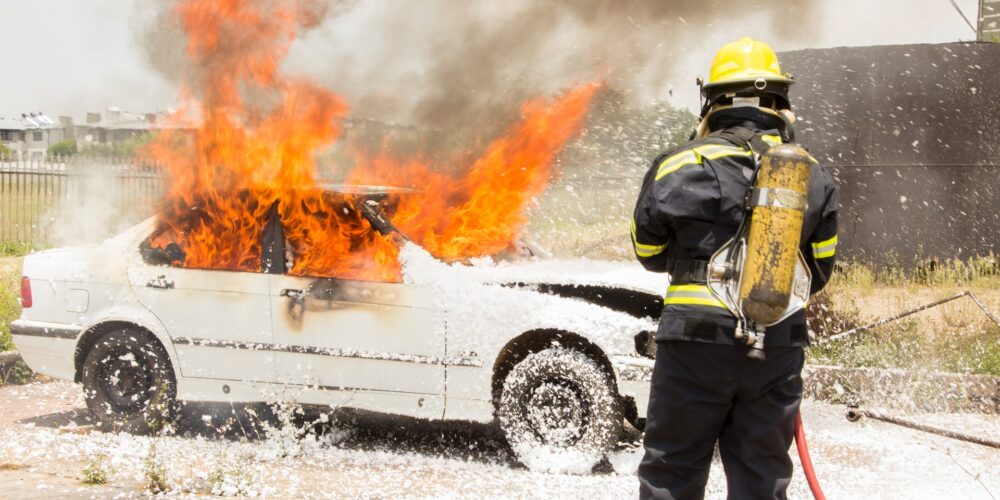Vehicle fires are a worry and fear that many of us as drivers have. While we might never have experienced one personally, hearing about them in the news cause anxiety about heading out onto the road with our own cars. What if something goes wrong? What do you do if your car does start to smoke? Thankfully, car fires are usually preventable and some of the most common causes can be avoided with proper maintenance and car care – here’s what you need to know.
How Common Are They?
Full-blown spontaneous vehicle fires aren’t as common as you think. However, fires can range from something as simple as a small fire that barely smokes, to sudden and engulfing fires. In total, fires happen in around 100,000 vehicles a year here in the UK, which is around 300 a day. What’s worth noting, however, is that 65% of these are started deliberately in order to cover up a crime. This leaves only 35% of the total figure relating to actual vehicle fires while you’re out on the road, and these are often avoidable.
1 – Vehicle Design Flaws
Today’s vehicles go through a multitude of tests but even with the amount testing each car goes through, some designs are simply flawed and might not appear so straight away. Thankfully, flaws that are bad enough to cause fires are usually caught and recalled before they can cause any widespread issues. Your best method of avoiding these fires is to keep an eye out for recall notices for your particular make, model and year. This is particularly the case for newer cars, as they often show up any issues within the first few years of being out on the market.
2 – Accidents
The impact of a car crash, even one that seems minor, could be the cause of a vehicle fire. While cars are designed to withstand a crash without bursting into flames, they can’t protect from every eventuality and so crashes resulting in fires do still happen. High-speed crashes, for example, can lead to leaks and fuel spills which, with just a bit of heat or a spark, can cause a fire. A smaller impact could result in the same if the impact leads to a leak or spillage.
3 – Poor Maintenance
One of the most common causes and the most avoidable is poor vehicle maintenance. Without proper maintenance, including everything from regular checks and servicing, to fluid checks and replacements, can lead to overheating or unchecked damage on the vehicle that ultimately leads to a spark or a fire. Mechanical failures such as excessive engine temperatures, faulty hoses, leaking pipes and seals and worn wiring can all lead to sparks and fires if not dealt with accordingly. It’s important to ensure that your vehicle is being serviced regularly and that you are sticking to maintenance schedules to help avoid damage and, of course, reduce the risk of fires.
4 – Electric Systems
The electrical system in a vehicle is one that a lot of us can overlook when it comes to maintenance and as a result, they are often the most likely to wear down without being fixed. The battery, for example, uses a highly flammable charging cycle due to the production of hydrogen in the engine. If a wire is loose or worn down, the hydrogen can ignite and cause an explosion within the vehicle which, of course, will lead to a fire. Batteries and wiring need to be regularly checked and maintained and replaced when they become worn or show any signs of damage.
5 – Overheating
Cars can overheat for a number of reasons though typically it occurs as a result of faults in the coolant system. Regular maintenance can help find and reduce the risk of coolant leaks, radiator issues, faulty pumps or clogged pipework or hoses, which can all lead to overheating. If the engine overheats, some of the key components can become incredibly hot and, if met with a flammable fluid or even just friction, can lead to fires. It’s important to keep an eye on your engine temperature and stop driving as soon as safely possible if you see it getting too hot while out on the road.
For more information about car fires and how we can help you maintain your vehicle to avoid them, simply get in touch with a member of our team. We’re on hand to help.

